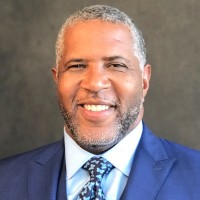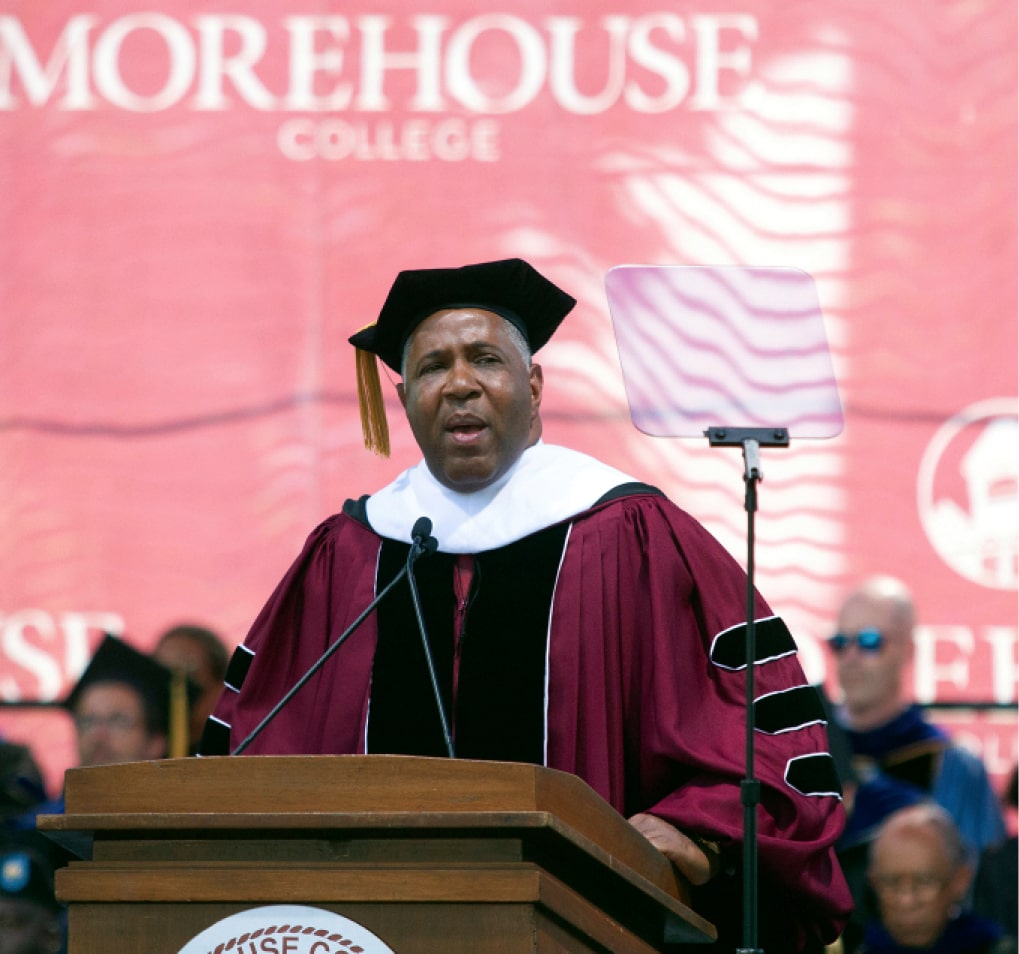Discrimination is a pervasive problem that takes many forms. No matter the reason for discrimination, it can have detrimental effects on a person’s personal and professional development.
But, what exactly is discrimination? Below, we discuss the common forms of discrimination, different examples of discrimination and resources that can be used to combat it.
What Are Different Types of Discrimination?
According to the American Psychological Association, the definition of discrimination is the inequitable treatment of an individual or group based on characteristics, such as their race, gender, age, religion, ethnicity, nationality, sexual orientation or disability.
Discrimination can manifest in several forms, including direct, indirect and systemic discrimination. Direct discrimination occurs when someone is overtly or covertly treated unfairly or differently because of a particular characteristic they possess. One example of direct discrimination is a microaggression, which is a subtle act or behavior that conveys a negative or discriminatory message toward a person based on their identity.
On the other hand, indirect discrimination takes place when policies or practices that may appear neutral have a disproportionately negative impact on certain groups. For example, requiring a certain level of education for a job that has nothing to do with the work being performed is a form of indirect discrimination on the basis of education. This type of discrimination disproportionately impacts people without a high school or college degree.
Additionally, systemic discrimination occurs when discrimination is ingrained in societal structures and institutions, such as the legal or education systems, which consistently disadvantage certain groups.
1. Age Discrimination
Age discrimination is the practice of treating someone unfairly or differently based on their age. While age discrimination can occur anywhere, it is often prevalent in the workplace, where it can take various forms. It is visible in terms of:
- Hiring practices: Age discrimination can occur during the hiring process if an employer chooses not to hire an applicant based on their age. For example, if an applicant is older, it may lead the interviewer to assume that the applicant cannot perform certain tasks because of their age.
- Termination or layoffs: Another instance of age discrimination is when an employer chooses to lay off or terminate older employees based on the assumption that they may be less productive because of their age.
2. Disability Discrimination
Disability discrimination is the unfair treatment or exclusion of individuals with disabilities from various areas, such as education, employment, housing and transportation. For example, if a person is treated unfairly based on preconceived notions about their physical or mental impairments, that is considered disability discrimination. Such discrimination is prohibited under the Americans with Disabilities Act of 1990, which protects people with disabilities from several types of discrimination. The following are examples of disability discrimination:
- Employment discrimination: An example of this type of discrimination is when a qualified individual with a disability is denied a job or promotion or is treated unfairly in the workplace because of their disability.
- Accessibility discrimination: This type of discrimination happens when buildings, transportation or public spaces are not accessible to people with disabilities. As a result of these limitations, people with disabilities are not able to fully participate in society.
- Education discrimination: Education discrimination happens when students with disabilities are not given equal access to educational opportunities or are denied accommodations to help them succeed in school.
- Healthcare discrimination: This type of discrimination takes place when people with disabilities are not given the same quality of healthcare as people without disabilities. Healthcare discrimination also occurs when their healthcare needs are not taken seriously by medical professionals.
- Housing discrimination: An example of this type of discrimination occurs when people with disabilities are denied housing or are provided with inadequate housing because of their disability.
3. Sexual Orientation
Sexual orientation discrimination is the unfair or unjust treatment of people based on their sexual orientation or perceived sexual orientation. This includes when someone is discriminated against, harassed or marginalized because of their sexuality. Examples of this type of discrimination include:
- Public accommodation discrimination: This type of discrimination occurs when individuals are denied access to goods or services, such as restaurants, hotels or public transportation, because of their sexual orientation.
- Employment discrimination: Employment discrimination occurs when an employer refuses to hire, promote or provide equal pay to an employee because of their sexual orientation.
- Housing discrimination: This occurs when a landlord refuses to rent or sell a property to someone because of their sexual orientation.
- Education discrimination: This type of discrimination occurs when students are subjected to bullying or harassment because of their sexual orientation or are denied access to educational opportunities or resources.
- Healthcare discrimination: Healthcare discrimination occurs when individuals are denied medical treatment or are provided with poor care because of their sexual orientation.
4. Parental Status Discrimination
Parental status discrimination, also known as family caregiver discrimination, occurs when an individual is treated unfairly in the workplace because they have caregiving responsibilities for a child or a sick or disabled family member. Examples of parent status discrimination include:
- Pay discrimination: This type of discrimination occurs when an employee is paid less than their colleagues with similar qualifications and experience because of their caregiving responsibilities.
- Retaliation discrimination: This happens when an employee is punished or disciplined for asserting their rights to fair treatment as a caregiver under anti-discrimination laws.



Linkedin Exclusive



Get Industry leading insights from Robert F. Smith directly in your LinkedIn feed.
Get Industry leading insights from Robert F. Smith directly in your LinkedIn feed.
5. Religious Discrimination
The U.S. Department of Commerce defines religious discrimination as “treating individuals differently because of their religious beliefs and practices.” Title VII of the Civil Rights Act of 1964 prohibits discrimination against an employee for their religious beliefs or presentation. For instance, employees cannot be discriminated against for wearing head coverings, such as a yarmulke or hijab, in the workplace.
6. National Origin
Discrimination based on national origin is the act of treating someone unfairly or differently based on their country of origin, ethnicity or ancestry. According to the Equal Employment Opportunity Commission (EEOC), it is illegal to discriminate against anyone on the grounds of their national origin as it relates to employment, including in “hiring, firing, pay, job assignments, promotions, layoff, training, fringe benefits and any other term or condition of employment.” For example, it is illegal to refuse to employ Asian immigrants, even if that business hires other immigrants.
7. Pregnancy
When an employer treats an employee or job applicant unfairly because of pregnancy, childbirth, or related medical conditions, this is an example of pregnancy discrimination. While pregnancy discrimination is illegal in the U.S., it still persists in the following forms:
- Promotion discrimination: This type of discrimination occurs when an employer refuses to promote a pregnant employee or assumes that the employee will not be able to handle their increased responsibilities.
- Pay discrimination: Pay discrimination occurs when a pregnant employee is paid less than their colleagues with similar qualifications and experience or pay is reduced.
- Harassment: This occurs when a pregnant employee is subjected to verbal or physical harassment.
- Unfair termination: This occurs when an employer terminates a pregnant employee because they assume that the employee will not be able to continue working because of their pregnancy.
8. Sexual Harassment Discrimination
Sexual harassment and sexual harassment discrimination happen when someone is treated unfairly or differently based on their sex or gender identity. This includes when perpetrators of this discrimination create a hostile or uncomfortable work or learning environment because of unwanted sexual advances, comments or behavior.
Sexual harassment can take many forms; the Rape, Abuse & Incest National Network cites several examples. Some of the examples include unwelcome sexual advances, inappropriate conversations about sex in the workplace, conditioning employment or advancement on sexual favors and physical acts of sexual assault, like inappropriate touching.
9. Race, Color and Sex
Race, color and sex are characteristics protected from discrimination under a variety of statutes and laws. The EEOC defines race discrimination as the act of treating someone unfairly or differently because of their race or personal characteristics, such as their hair texture or skin color. Such discrimination extends beyond the workplace to the denial of employment opportunities to people of different races.
Refusing to provide someone with health care, equal education and fair housing opportunities are also examples of racial discrimination and are outlawed under Title VII of the Civil Rights Act of 1964, the Fair Housing Act of 1968 and the Brown v. Board of Education ruling in 1954. Similarly, sex discrimination is the unfair treatment of someone because of their sex, which is prohibited by Title VII of the Civil Rights Act.
10. Reprisal and Retaliation
Reprisal and retaliation are forms of workplace discrimination in which someone is punished or discriminated against for engaging in lawful activity, such as filing a complaint of discrimination or harassment in the workplace. Reprisal occurs when an employer takes action, such as termination, demotion or harassment against an employee who has reported a complaint or participated in an investigation, hearing or proceeding related to discrimination.
Similarly, retaliation occurs when an employer takes action against an employee who has engaged in processes aimed at ensuring safe and accountable workplaces. These types of instances include reporting an act of discrimination to a company’s Human Resources Department or participating in a workplace investigation.
Examples of retaliation can include demotion and termination. Both reprisal and retaliation discrimination are illegal under various anti-discrimination laws, including Title VII of the Civil Rights Act, the Americans with Disabilities Act, the Fair Labor Standards Act and the Age Discrimination in Employment Act. If an employee believes they have been subjected to reprisal or retaliation discrimination, they should file a complaint with the appropriate federal or state agency.
Final Thoughts: How to Deal With Discrimination
Discrimination of any type, in any setting, is unacceptable and should never be taken lightly. Experiencing discrimination and harassment is difficult and can have a detrimental impact on those who experience it. While it may be overwhelming and daunting, it is important to take action against instances of discrimination.
That is why it is critical to understand the laws and statutes prohibiting discrimination. As we mentioned earlier, the Civil Rights Act, Americans with Disabilities Act, Pregnancy Discrimination Act, Equal Pay Act, Age Discrimination in Employment Act, Equal Credit Opportunity Act and more all legally prohibit discrimination. These laws, especially as it relates to employment, are enforced by the Equal Employment Opportunity Commission. If someone witnesses discrimination or experiences it, especially in the workplace, they should look into these laws or reach out for help.
To learn more about topics such as this, follow Robert F. Smith on LinkedIn.







